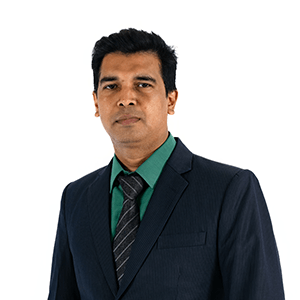Overview
The Center for Sustainable Nanoparticles Synthesis (CNSN) is on the 1st floor of UU. This is a well-equipped research lab where the faculty, students, and research assistants work for their research purposes.
Rules
Regarding the Establishment of “Center for Sustainable Nanoparticles Synthesis (CSNS)”, Department of Physics, Uttara University
Establishing a "Center for Sustainable Nanoparticles Synthesis (CSNS)" at the Department of Physics, Uttara University, involves careful planning, adherence to regulations, and a commitment to sustainable practices. Below are some general guidelines and rules that may be considered for the establishment of such a center:
Definitions
In these rules, unless there is anything contrary to the subject of context: "CSNS" means the ‘Center for Sustainable Nanoparticles Synthesis’ or its abbreviated form CSNS established and maintained by the Department of Physics, Uttara University as an integral part thereof and subject to the provisions of these rules.
- "Director" means the Director of CSNS;
- "Associate Director" means Associate Director of CSNS.
Vision
To set up a world-class quality nanotechnology center in the Department of Physics of Uttara University.
Mission
At the Center for Sustainable Nanoparticles Synthesis (CNSN) for Master of Science in Physics at Uttara University, our mission is to foster a dynamic and forward-thinking environment that advances knowledge and expertise in the field of physics, with a focus on innovation, research, and technology. Our mission is built upon the following core principles:
- Empower students with a strong foundation in physics while equipping them with the knowledge and skills needed to engage in environmentally friendly nanoparticle synthesis and characterization.
- Promote research and innovation in green nanoparticle synthesis methods that have reduced environmental impact and promote sustainability.
- Foster an interdisciplinary approach, encouraging collaboration between physicists, chemists, and engineers to develop eco-friendly nanoparticle technologies.
- Provide students with advanced laboratory training, enabling them to accurately characterize and analyze the properties of nanoparticles.
- Encourage the exploration of alternative and sustainable energy sources, with a focus on harnessing the power of nanoparticles for clean energy production.
- Equip with the ability to design and conduct experiments related to green nanoparticle synthesis, as well as power production, and to interpret and communicate their findings effectively.
- Be instilled in an understanding of the environmental and societal implications of nanoparticle technologies and power production, and promote ethical decision-making in these fields.
- Be engaged in community outreach and education to raise awareness about the importance of sustainable and green practices in science and technology.
- Foster a culture of critical thinking, problem-solving, and innovation, enabling graduates to contribute to global efforts to address environmental challenges and energy needs.
- Be prepared graduates for careers in research, academia, industry, and policymaking, where they can drive advancements in green nanoparticle synthesis, characterization, and sustainable power production.
Objectives
The objective of the Center for Sustainable Nanoparticles Synthesis (CNSN) is to equip students with the knowledge and skills to conduct research in the field of green synthesis and characterization of nanoparticles, with a focus on their applications in sustainable power production. This program aims to foster a deep understanding of the principles and techniques involved in the synthesis and characterization of nanoparticles using environmentally friendly methods and to explore their potential for enhancing power generation technologies. Graduates of this program will be well-prepared to contribute to the development of eco-friendly energy solutions and advance the field of nanotechnology in energy production.
CIT-OB1: Investigate and develop eco-friendly methods for the green synthesis of nanoparticles using plant extracts and sustainable materials.
CIT-OB2: Study the fundamental principles of nanotechnology and their application in the field of materials science and physics
CIT-OB3: Understand the environmental impact and sustainability of green synthesis processes for nanoparticles.
CIT-OB4: Investigate the potential applications of nanoparticles in fields like medicine, energy, and environmental remediation.
CIT-OB5: Assess the economic feasibility and scalability of green synthesis methods for large-scale nanoparticle production.
CIT-OB6: Contribute to the advancement of knowledge in the field of nanotechnology and its applications, particularly in the context of sustainable energy solutions, as part of the Master of Science in Physics program at Uttara University.
Formation and Integration
A “Center for Sustainable Nanoparticles Synthesis” is set to be established within the Department of Physics at Uttara University. The center will be maintained and controlled in adherence to the specified rules. The university will be responsible for providing the necessary space, buildings, and all other physical requirements essential for the center's functioning, treating it as an integral part of the university.
The Director of the 'Center for Sustainable Nanoparticles Synthesis' will be appointed by the chairman of the Physics department. The appointment will be for a three-year term and will be selected from senior professors at Uttara University who possess a PhD degree.
The Director shall remain in charge of CSNS and shall be responsible for the overall management of the Center. S/he shall be entitled to such allowances and privileges as the equivalent posts of other centers/institutes/departments of the University;
The Associate Director will be appointed by the Chairman, Department of Physics for a period of 3 years from the teachers not below the rank of Associate Professor of Uttara University. S/he shall be entitled to such allowances and privileges as the equivalent posts of other centers/institutes/departments of the University;
Powers and Functions of Director and Associate Director(s)
- The Director shall be the Chief Executive of CSNS.
- The Director shall ensure that the provisions of these rules are faithfully observed and carried out and s/he shall exercise all powers necessary for this purpose;
- The Director shall take initiative and necessary steps to fulfill the objectives of CSNS as per the provisions of the rules;
The Director shall forward and counter-sign all research proposals for funding; The Associate Director and other members of the Center shall carry out them duties and assignments as may be prescribed by the rules and as per the directives of the Director.
Powers of the Governing Body
Strategic Planning: Developing and implementing long-term strategic plans for the center, including research goals, academic programs, and resource allocation.
Budget Oversight: Managing and overseeing the budget for the center, including allocating funds for research projects, equipment, and personnel.
Personnel Decisions: Making decisions related to faculty and staff appointments, promotions, and other personnel matters within the center.
Research Oversight: Monitoring the quality and progress of research conducted within the center, ensuring compliance with ethical standards and relevant regulations.
Collaborations and Partnerships: Approving and overseeing collaborations with other research institutions, industry partners, and government agencies.
Publications and Presentations: Reviewing and approving publications, presentations, and other scholarly activities associated with the center.
Facilities Management: Overseeing the use and maintenance of facilities and equipment within the center.
Policy Development: Developing and implementing policies and procedures specific to the center, in line with the overall policies of the university.
Financial Aspects
Establishing and running a research center involves various financial considerations. Here are some key aspects to consider:
Infrastructure Costs: Building or renovating a dedicated space for the center. Purchasing and setting up specialized laboratories for nanoparticle synthesis. Installing necessary equipment and instrumentation.
Equipment and Technology: Acquiring advanced equipment for nanoparticle synthesis, characterization, and analysis. Investing in state-of-the-art technology for sustainable and environmentally friendly synthesis methods.
Research Personnel: Hiring skilled researchers, scientists, and technical staff. Providing competitive salaries and benefits to attract and retain qualified professionals.
Research Funding: Securing research grants and funding from government agencies, private organizations, and industry partners. Developing collaborations with other research institutions for joint projects and funding opportunities.
Training and Development: Providing continuous training and development programs for researchers and staff to stay updated on the latest advancements in nanoparticle synthesis.
Collaborations and Networking: Allocating funds for conferences, workshops, and seminars to facilitate collaborations and networking opportunities. Supporting travel expenses for researchers attending national and international conferences.
Outreach and Communication: Allocating funds for outreach activities to promote the center's achievements and research findings. Investing in communication strategies to disseminate research outcomes to the scientific community and the public.
Sustainability Measures: Incorporating sustainable practices in the center's operations to reduce long-term costs and environmental impact. Exploring partnerships with organizations focused on sustainable technologies and practices.
Contingency Fund: Establishing a contingency fund to address unforeseen expenses or emergencies.

Dr. Tareque Aziz
Chairman
Associate Professor
Department of Physics

Nilufer Yesmin Tanisa
Director
Assistant Professor
Department of Physics

Md. Moiful Alam
Associate Director
Assistant Professor
Department of Physics

Abul Monsur Mohammed Musa
Member
Assistant Professor
Department of Physics

Asif Parvez
Member
Assistant Professor
Department of Physics

Jahid Hossain Bhuiyan
Member
Lecturer
Department of Physics
Loading...
